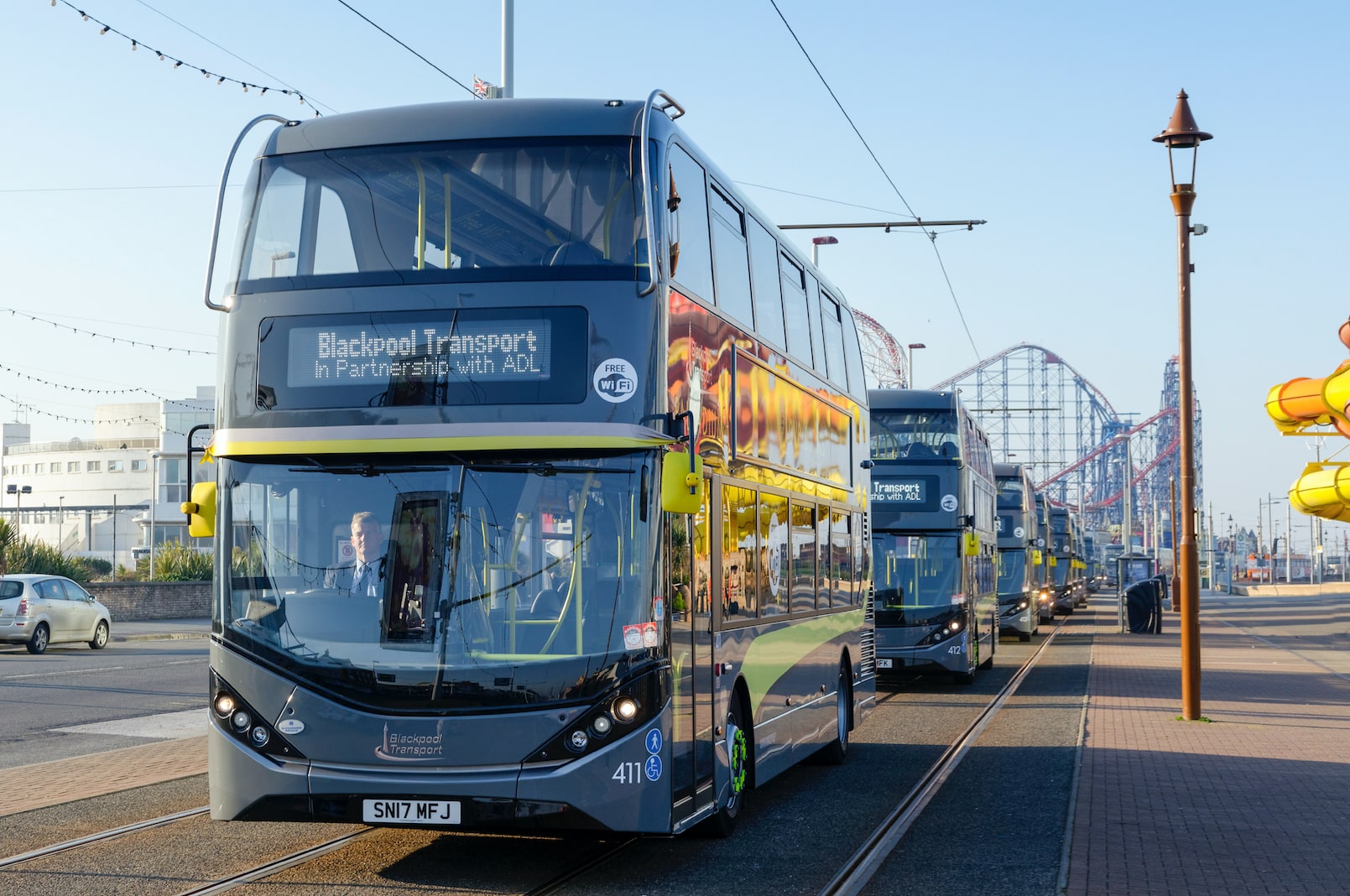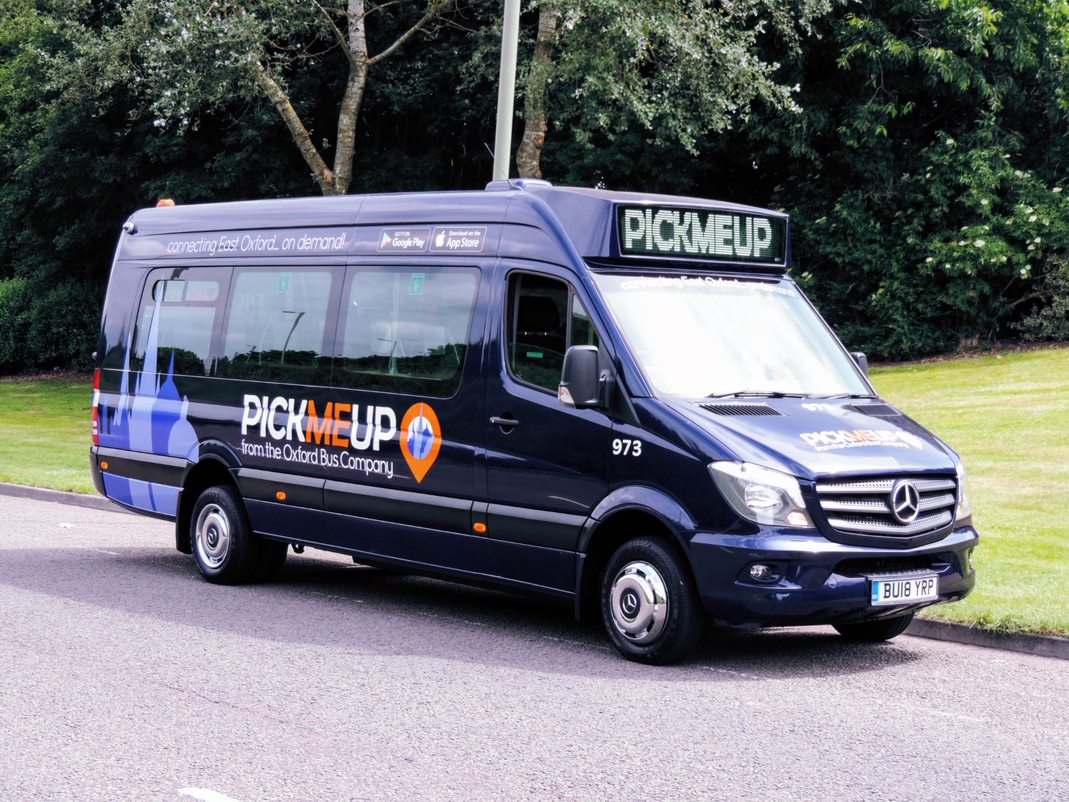routeone speaks to Blackpool Transport Finance and Commercial Director James Carney to discover how the operator has responded to the coronavirus COVID-19 and how it will affect the way it does business in the long term
Blackpool Council, shareholder of municipal bus company Blackpool Transport (BT), set out in plain terms at the start of the coronavirus COVID-19 emergency that it intended to run the best possible key worker service across its network.
Its objectives included a system with ample communication, high morale across its workforce, and an efficient network of buses. routeone finds out what changes it made, and how the pandemic will impact its operational process in the years after the emergency.
Sudden change at Blackpool Transport
Blackpool Transport Finance and Commercial Director James Carney explains how slamming the brakes on the business, holding together the morale of those no longer given work and upping communication to triple its previous levels has been a mighty task – and that is before beginning the plan to restart the business knowing the world might potentially never be the same again.
BT began a process of daily meetings, led by Director of People and Stakeholders Sally Shaw, when the emergency began in order to glean as much intelligence as it could about government intentions. With what information it could gather it was able to formulate an estimate of network requirements. That involved a bit of ‘guesswork’ according to James, but BT was resistent to reverting to a ‘Sunday service’ that had become a familiar reflex response across the UK.
A further part of the information gathering involved its user base on social media. Information about the times of day people needed buses allowed BT to build its network around key worker requirements. “We always knew that the numbers of people travelling would be relatively small,” James explains, “but Blackpool Transport Managing Director Jane Cole was clear that the majority were highly likely to be ancillary staff that make possible other equally essential medical and care work.”
Building its services around their requirements resulted in a network totalling around 47% in mileage terms of services pre-coronavirus COVID-19. At the same time BT looked at the expectations of staff; in place is a temporary agreement with union Unite: An offer to staff who wish to be furloughed an 80% pay rate according to government levels; a second option to remain working on 100% pay; and thirdly, a revolving furlough rota of three weeks’ duration. Discussions on the flexibility of paying staff at a 100% rate gave BT ‘significant trust capital’ with Unite, James adds, allowing sustainable changes to be made quickly and efficiently.
Senior management at BT have also used videos and social media to cover a range of subjects that reassure and inform staff as the situation evolves.
“We’re taking the opportunity to get closer to our staff, and what is clearly happening is that morale is rising – people are past the fear stage and now know the company is there protecting them.
As it stands the current key worker network is carrying about 17% of last year’s customers. Radical changes include abandoning the graduated fares scheme, and the introduction of a flat fare of £1.50 across the network. This is to make travel as easy as possible for those making essential journeys. BT’s one-hour app ticket has been fixed at the same price, and James confirms over 300 tickets a day are being sold through the app, assisting in contactless transactions while an increase in 50p coins shows more customers are paying the exact fare.
A week into the emergency, BT also closed its tram service. It identified that the majority of users in the summer are visitors, which made its operation incompatible with social distancing measures. However, buses which run parallel to the tram are currently the operator’s second highest performing service – one of the advantages of having an integrated bus and tram network.
Jane and Sally have prioritised personal protective equipment for its workers and is maintaining a high level of visible sanitation. Gloves, sanitiser fluid and contactless payments all help keep workers safe. “It is incredibly important to us,” James says. “Especially when it was announced that a number of Transport for London staff had died from the virus – there was a feeling that transport employees were vulnerable to the worst possible outcomes. We have made it clear that we will do everything we can to protect them from infection.”
At the start of the outbreak, BT offered a sick pay scheme of 100% to any worker showing symptoms of coronavirus COVID-19. “We could not afford for anyone to try and shrug off the symptoms and become part of the infection rate,” James explains. At present, only a tiny number of BT’s workers or family members have declared symptoms of the virus.
Resumption of services
BT is carefully building financial models that will show 16 scenarios of output and patronage in order to give it an idea of financial consequences of certain decisions on the resumption of services. The crisis has, incidentally, proven the catalyst to make changes which, according to James, were perhaps long overdue.
“This is the moment to take the opportunity of change,” he says. “People will understand that we can have a new start.”
One change on the horizon is the introduction of a zonal fares scheme – another is the implementation of contactless payments, encouraged by social distancing, and tap-to-board is expected later in the year. “We’re anxious about government warning people not to travel by public transport,” James says. “We need to be showing greater levels of customer experience.”
Of that BT has already made significant achievements – the 2019 Transport Focus survey showed a satisfaction rate of 92% among its customers and 60% claimed to be ‘very satisfied’, a record level according to James’ five year analyses. “Every indicator about the buses, the driving staff, and the punctuality of services indicates it is the highest quality we have ever had.”

Keeping a modern fleet at Blackpool Transport
Part of that customer satisfaction is BT’s dedication to fleet renewal. The average age of the operational fleet as of March was 2.7 years old, with the oldest operational bus having been purchased in June 2015. Coronavirus COVID-19 has had no impact on those fleet renewal plans. “One of the things I am able to demonstrate is that new buses are cheaper to run than much older ones,” James explains. “We want to keep our costs down – we continuously identify new savings that can be made in both engineering and other support areas, which comes as a result of having modern systems.”
BT buys Euro VI with smart packs from Alexander Dennis as part of a fleet renewal partership, ensuring a fleet of ultra-clean diesels. It will be submitting an expression of interest to become an all-electric bus town in early June, citing an urban mileage level of 92% on its network as a strong proposition to government. If successful, it will be able to take delivery of its first electric buses in early 2022. BT already has a scheme in progress to have its first electric vehicle maintenance facility operational by that point.
The right support
BT’s handling of the coronavirus COVID-19 outbreak, and its focus on ensuring a service built around feedback from its users, shows how important communication is both internally and with an operator’s customers – in addition to the right level of support from local government.
“One of the things we were acutely aware of is that a lot of people would be hungry to know what the company’s policies would be, what actions we were proposing and how we are going to protect our workers,” James says.
BT’s wellbeing ambassadors, which it introduced last year, have been a key to diffusing anxiety and taking forward trust and patience that the business wanted to keep its workers and passengers safe.
And James concludes that the main driver in making everything possible was the support it received from Blackpool Council. He believes that support will accrue benefits beyond the pandemic.
“When you get to a crisis like this, that’s the moment when a local authority that believes in public transport as a key economic driver to its town will support you,” he explains. “And that strategy will live on beyond the medical emergency.”





























